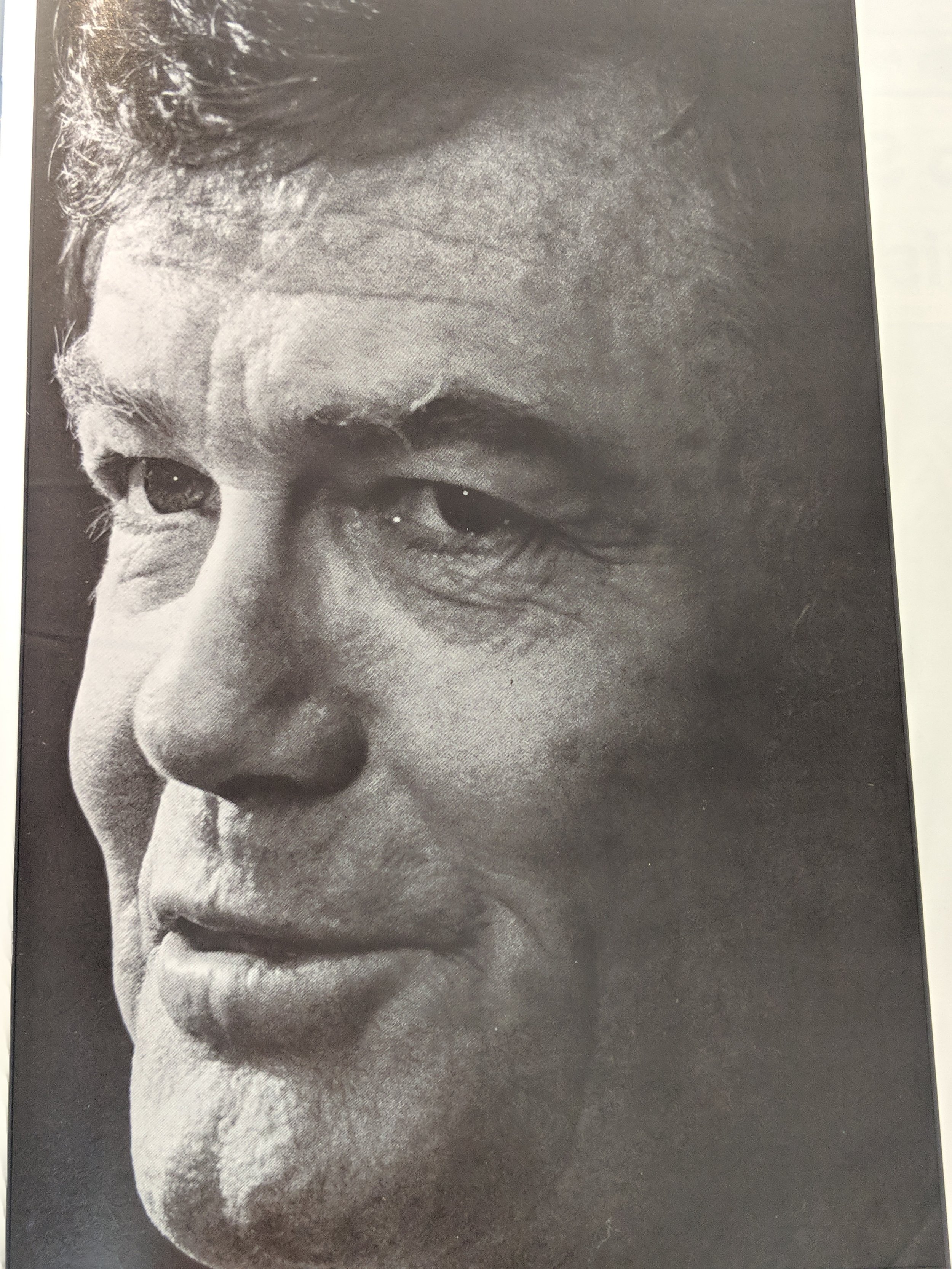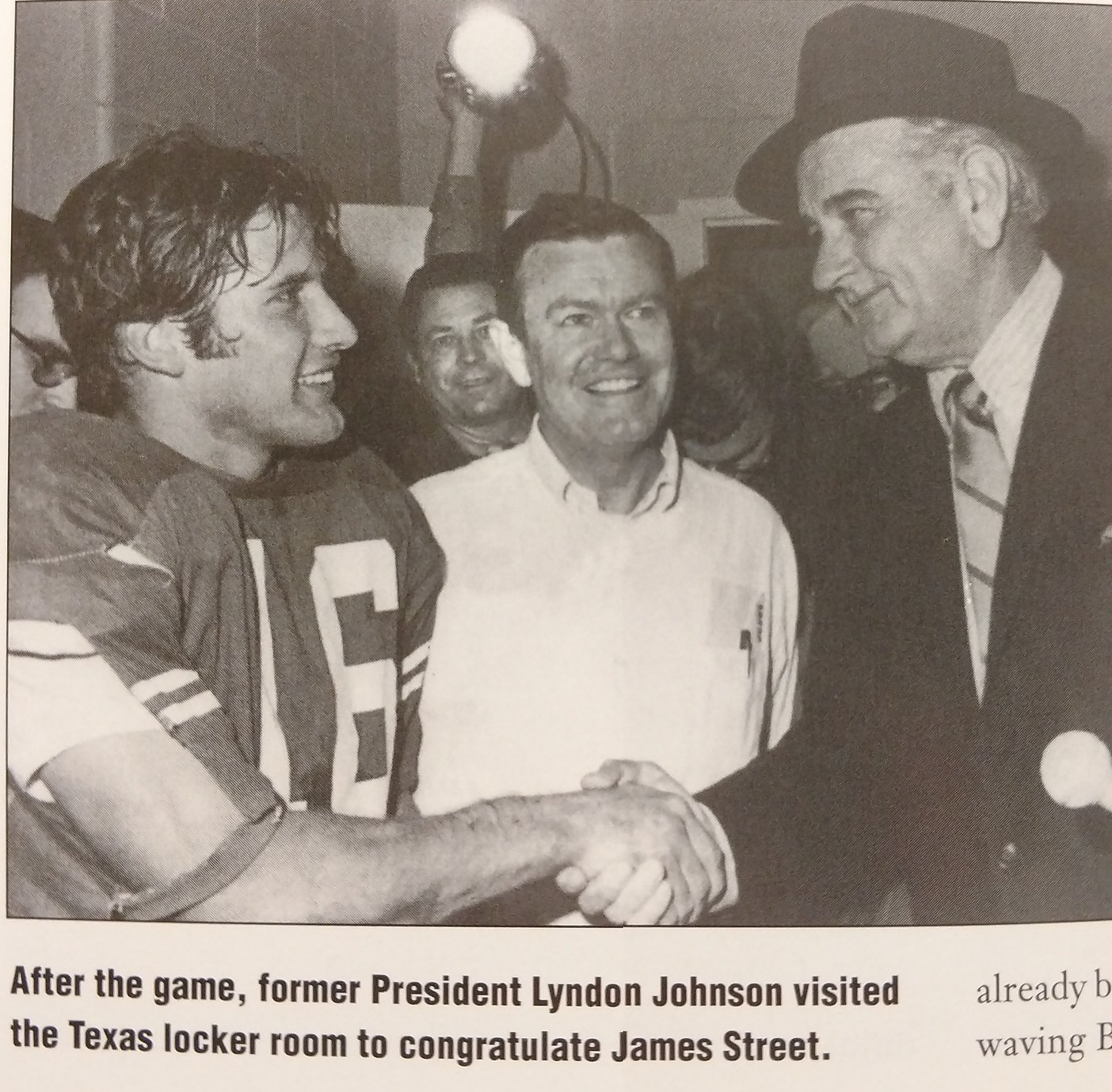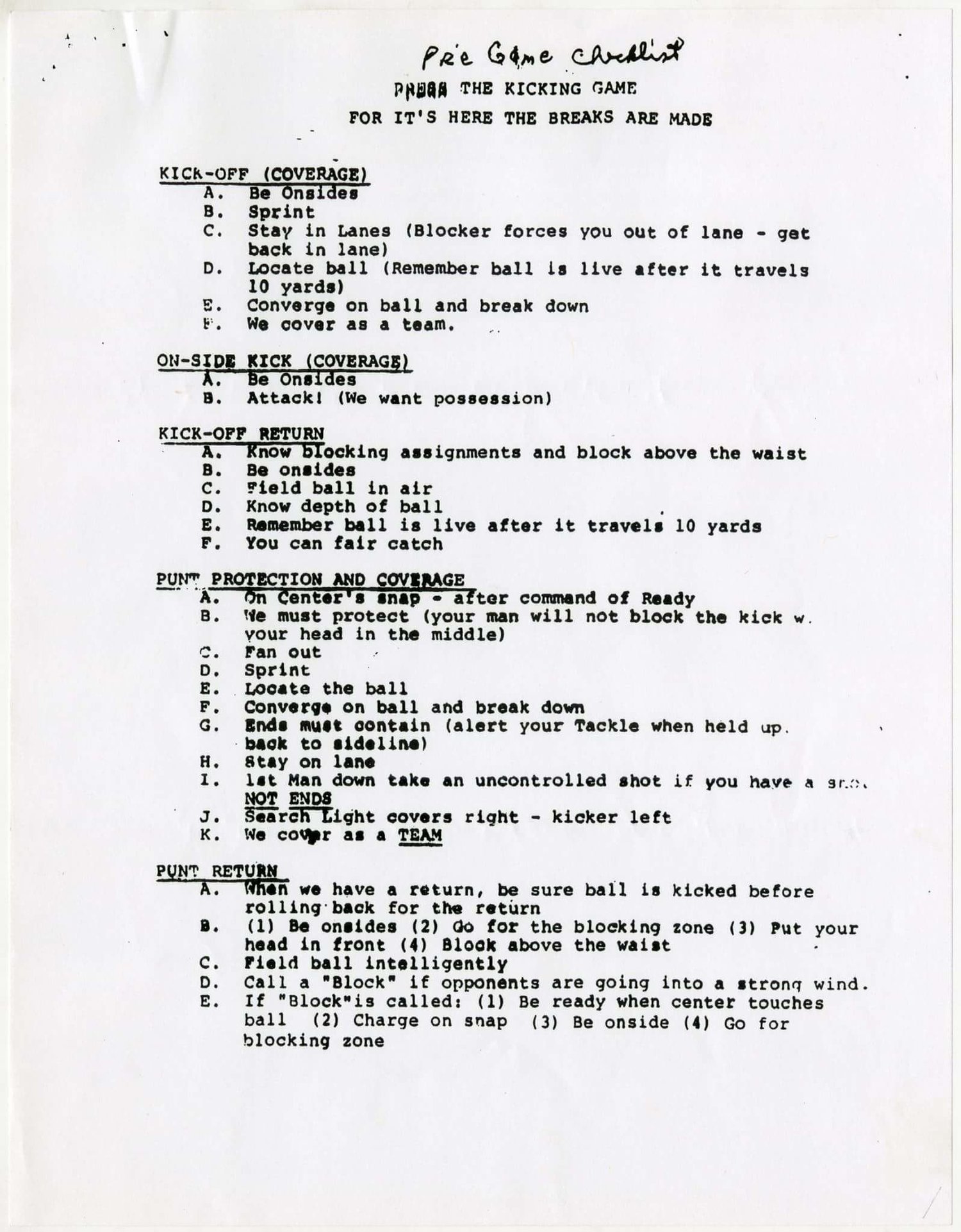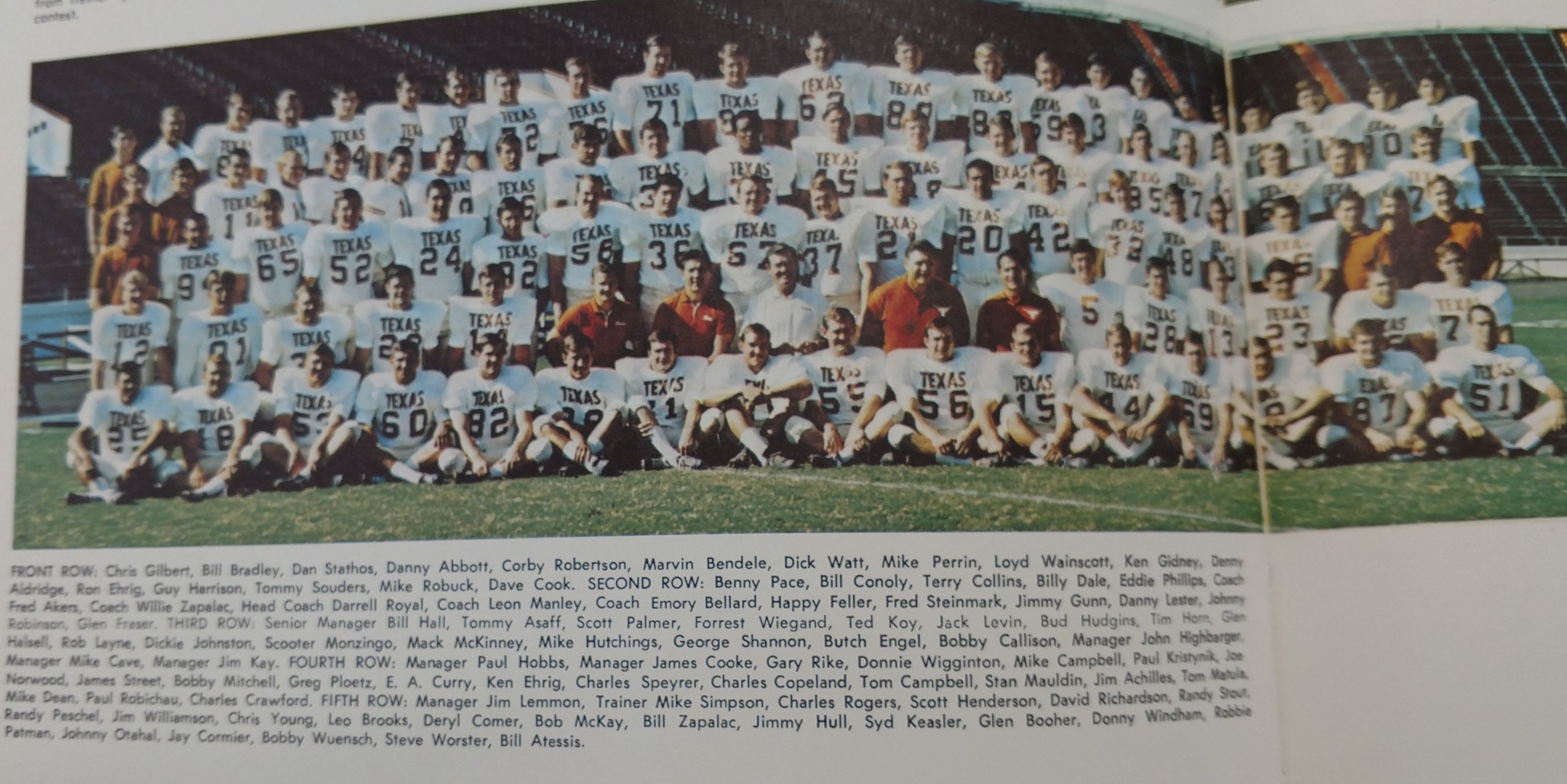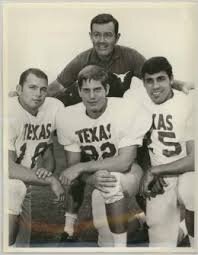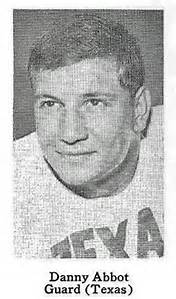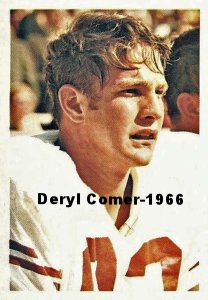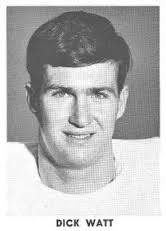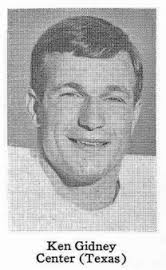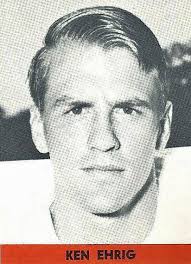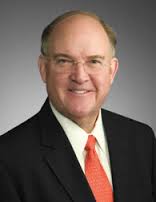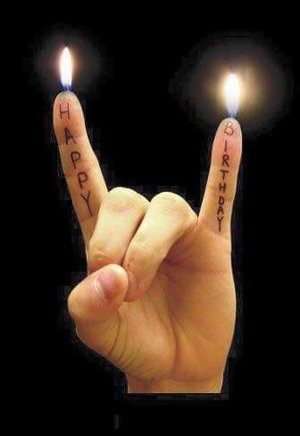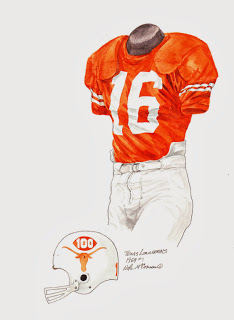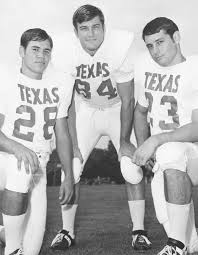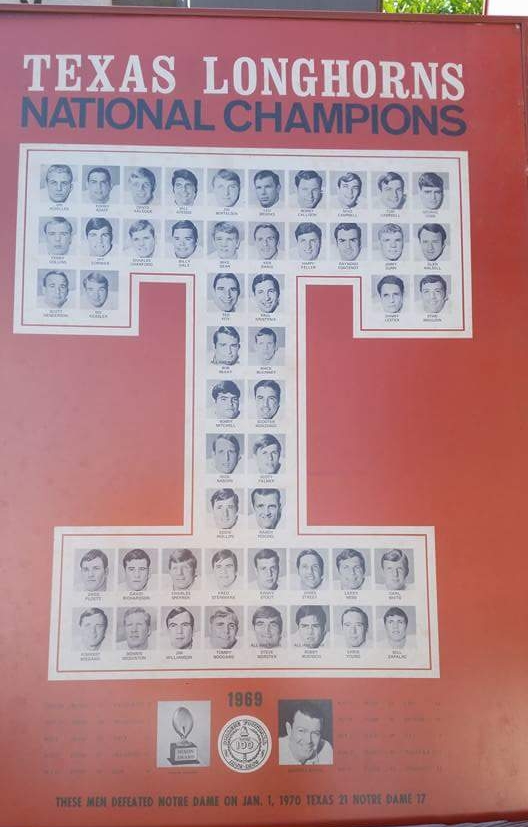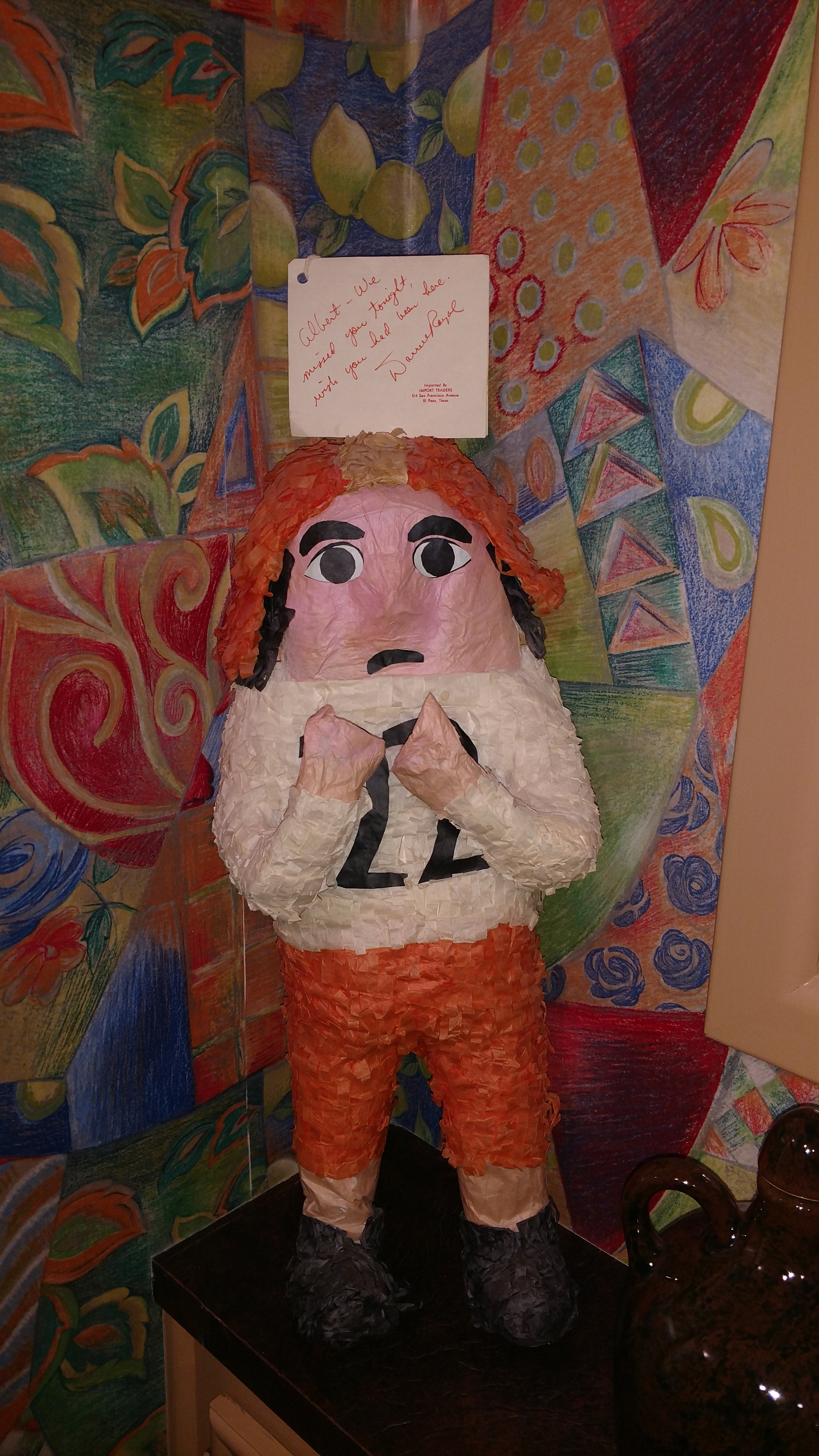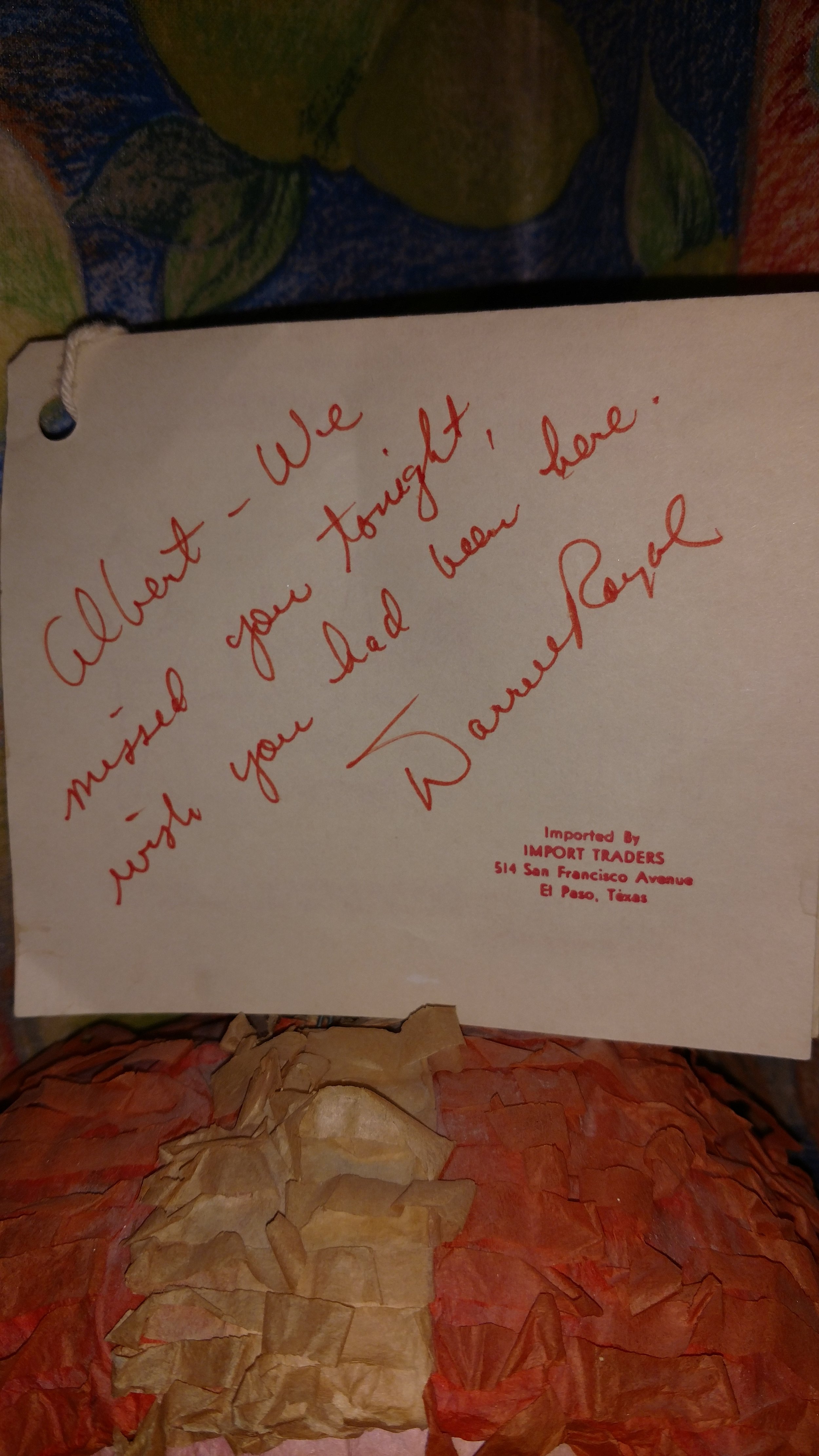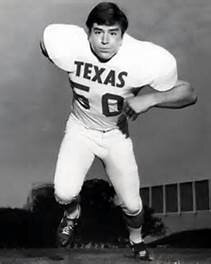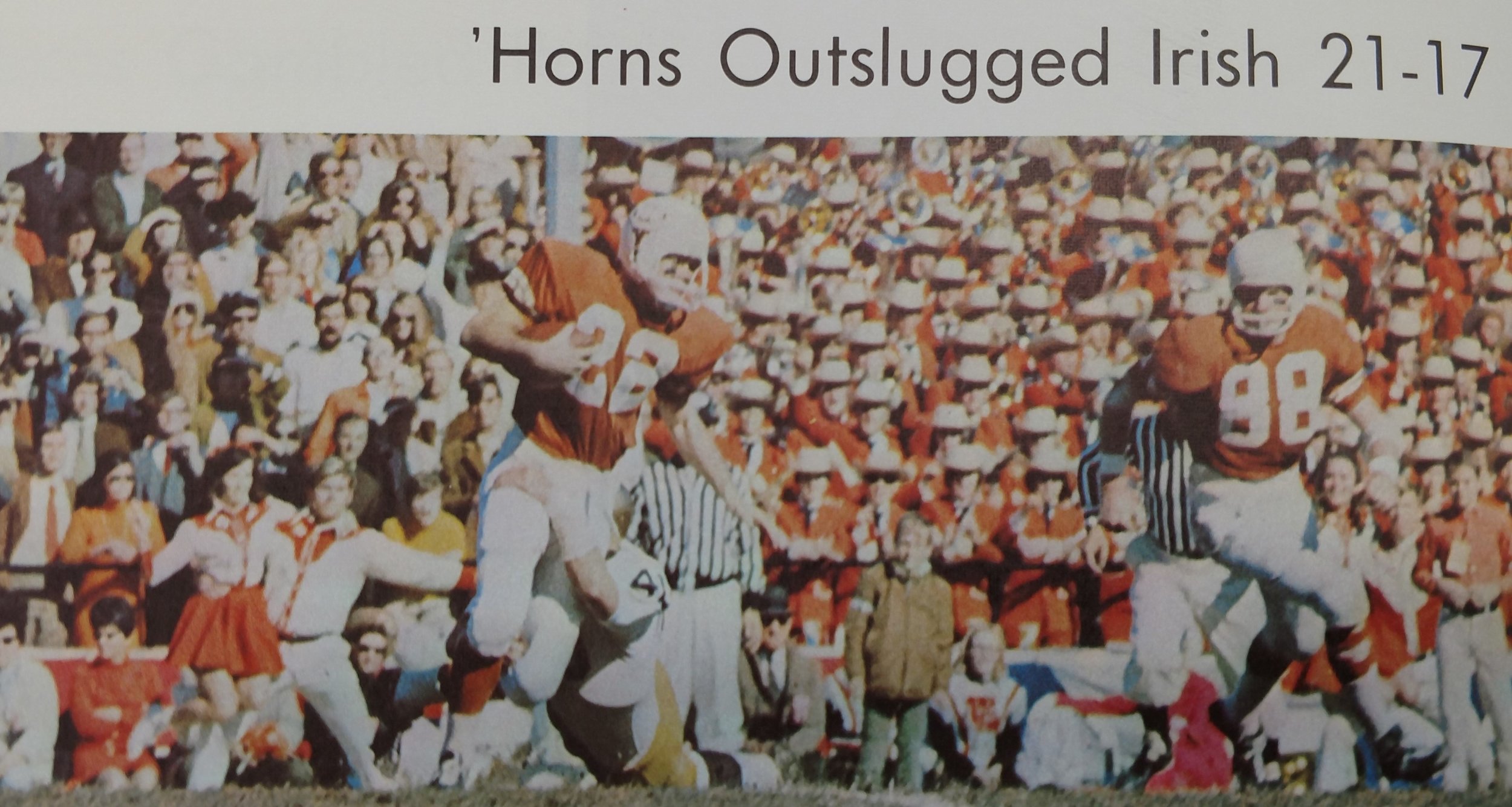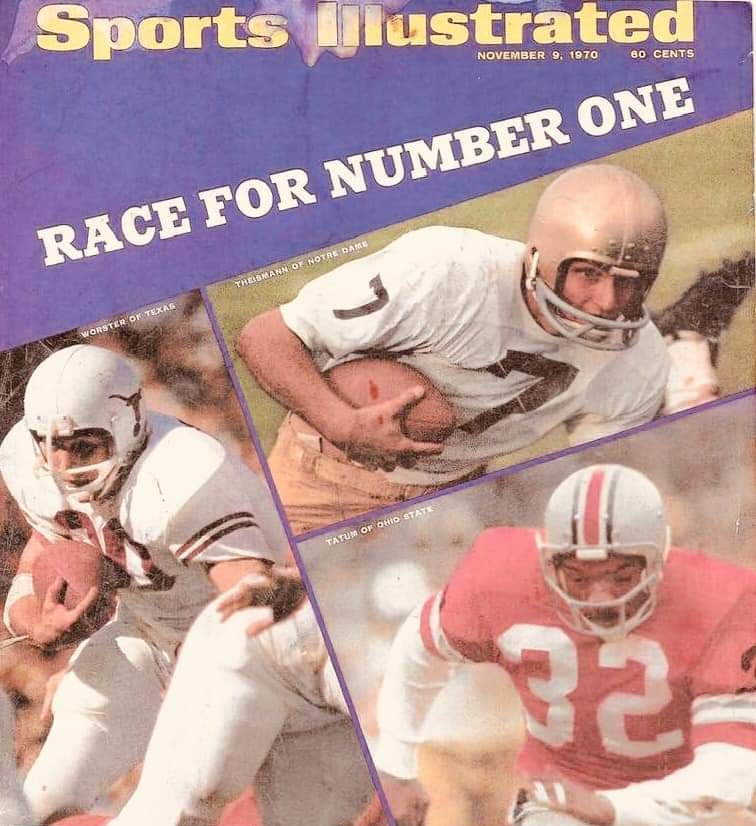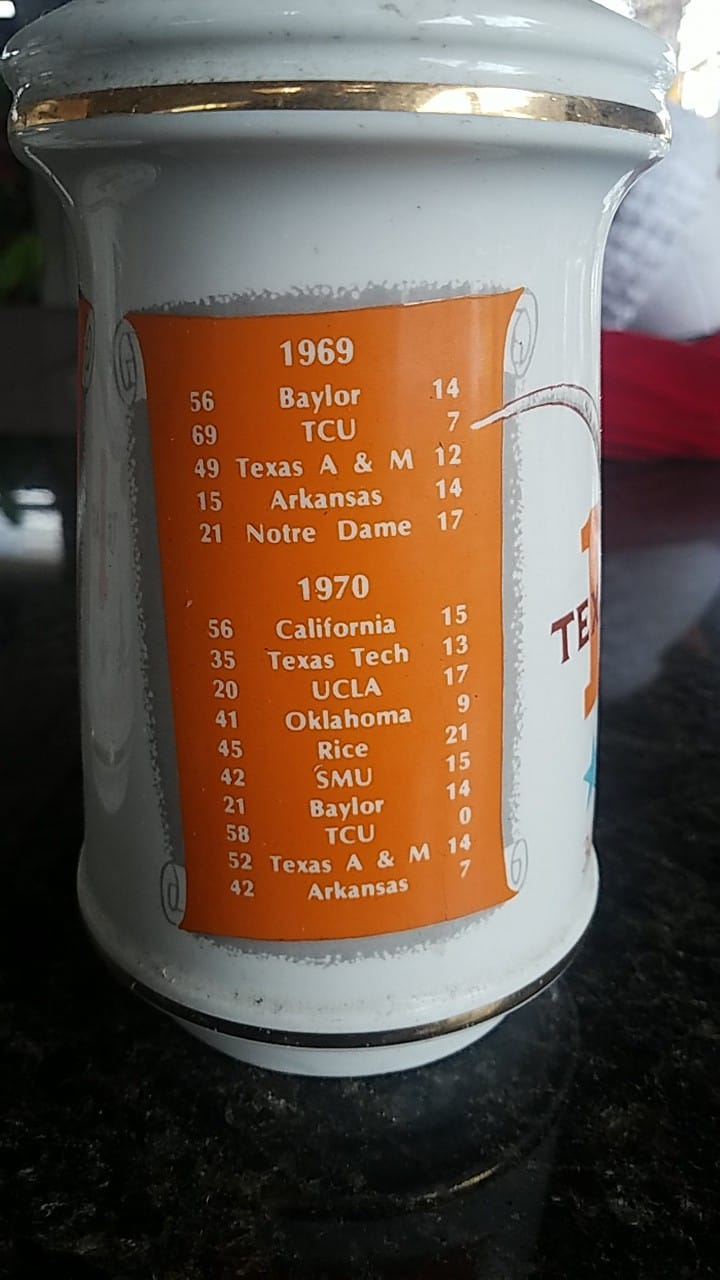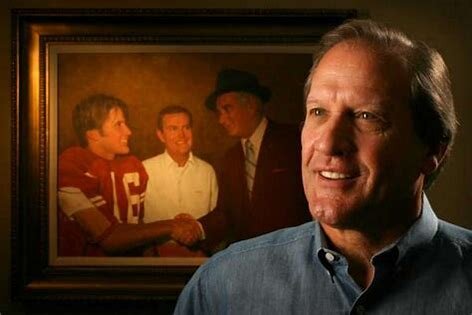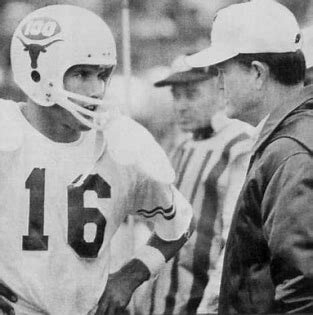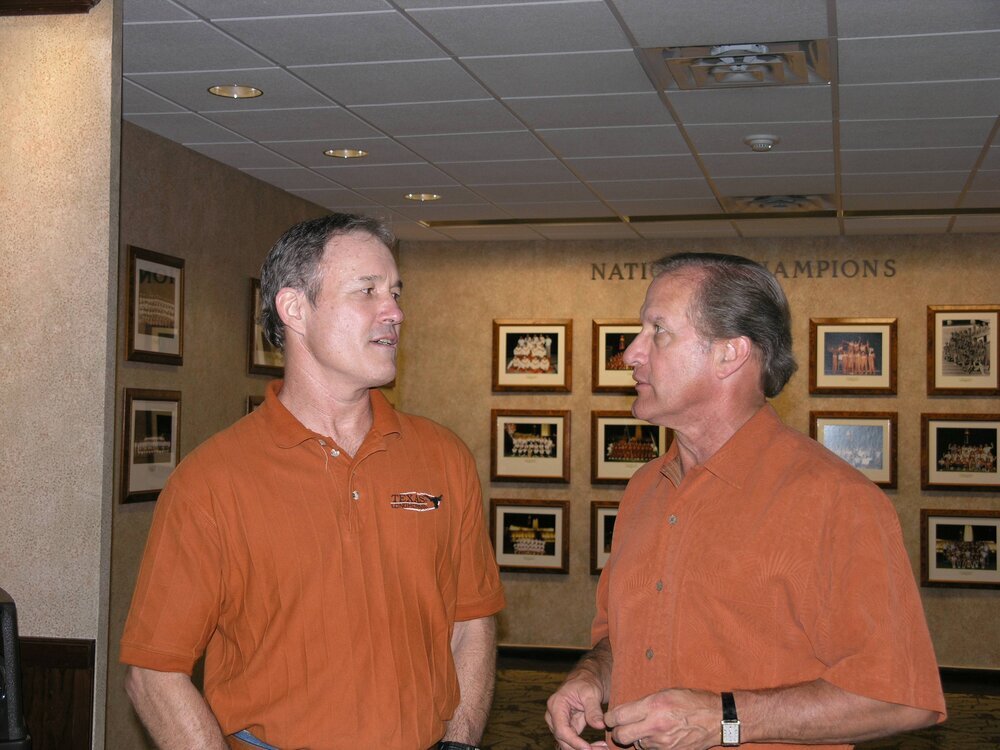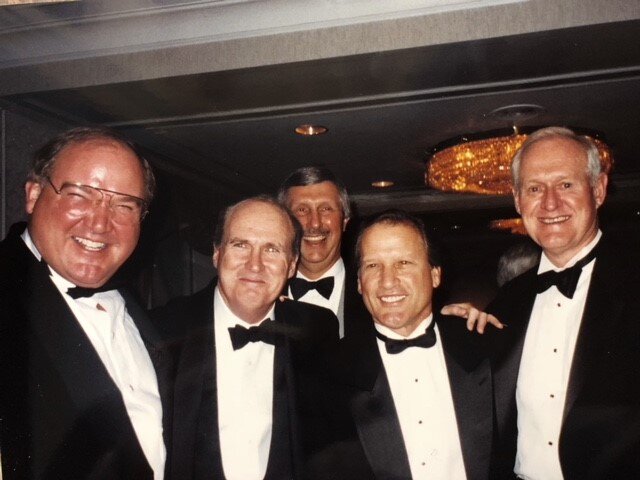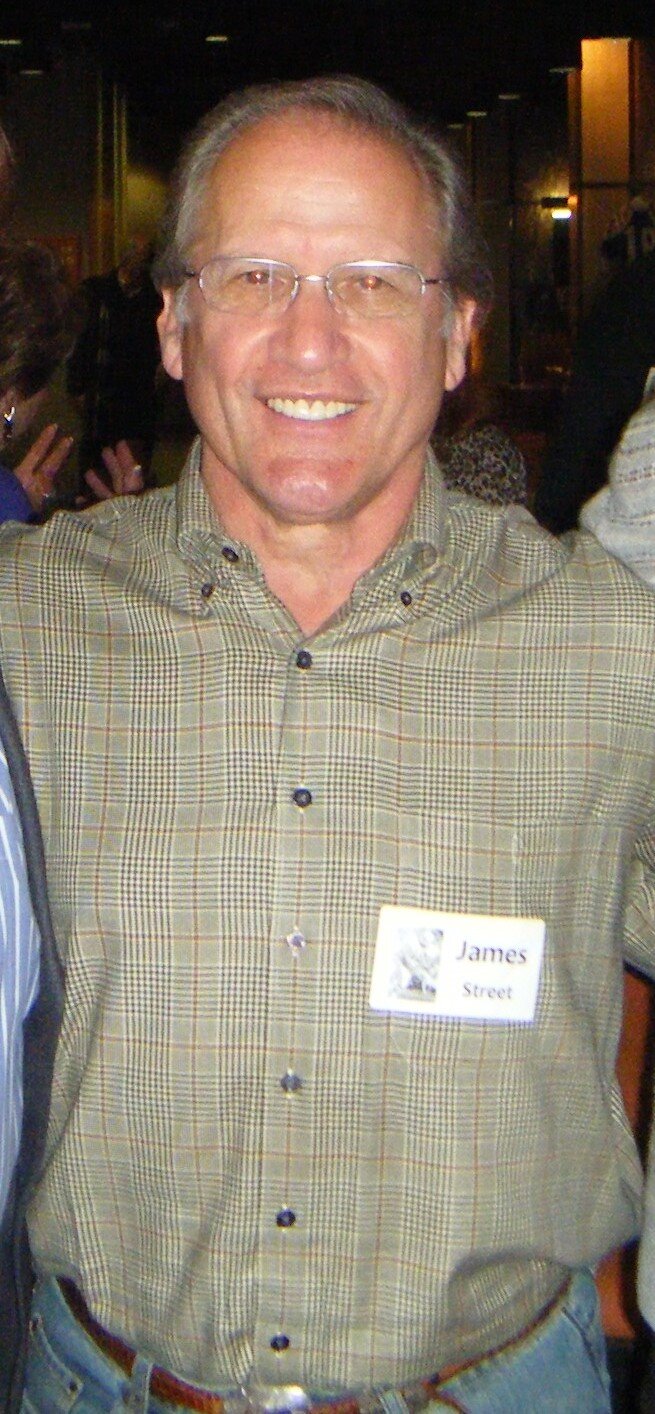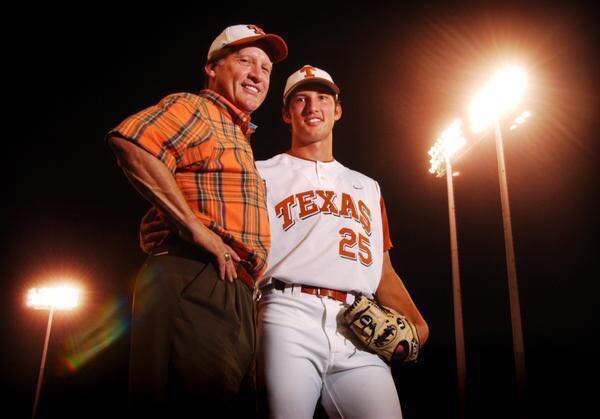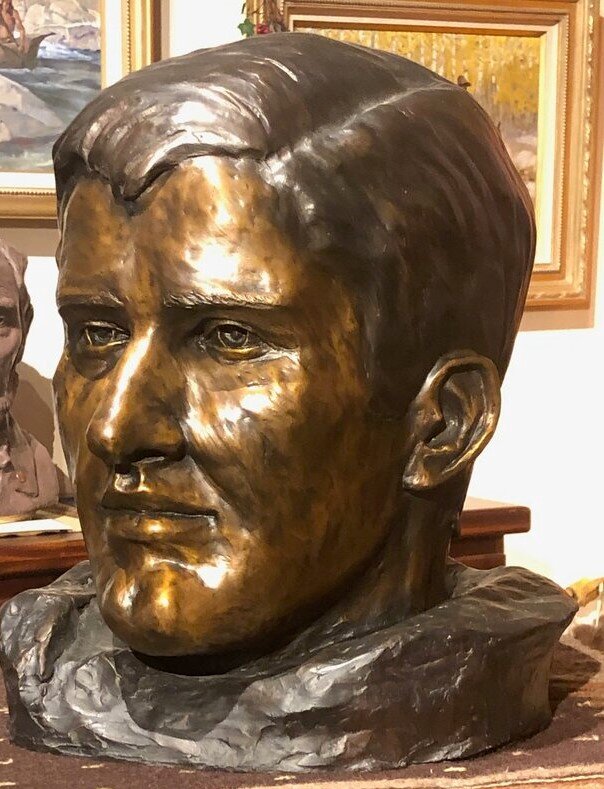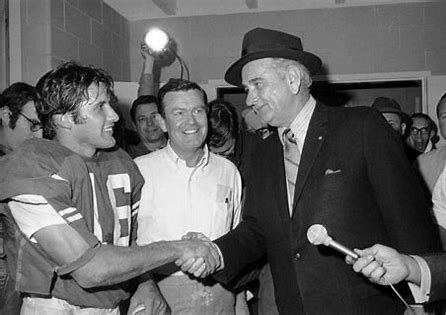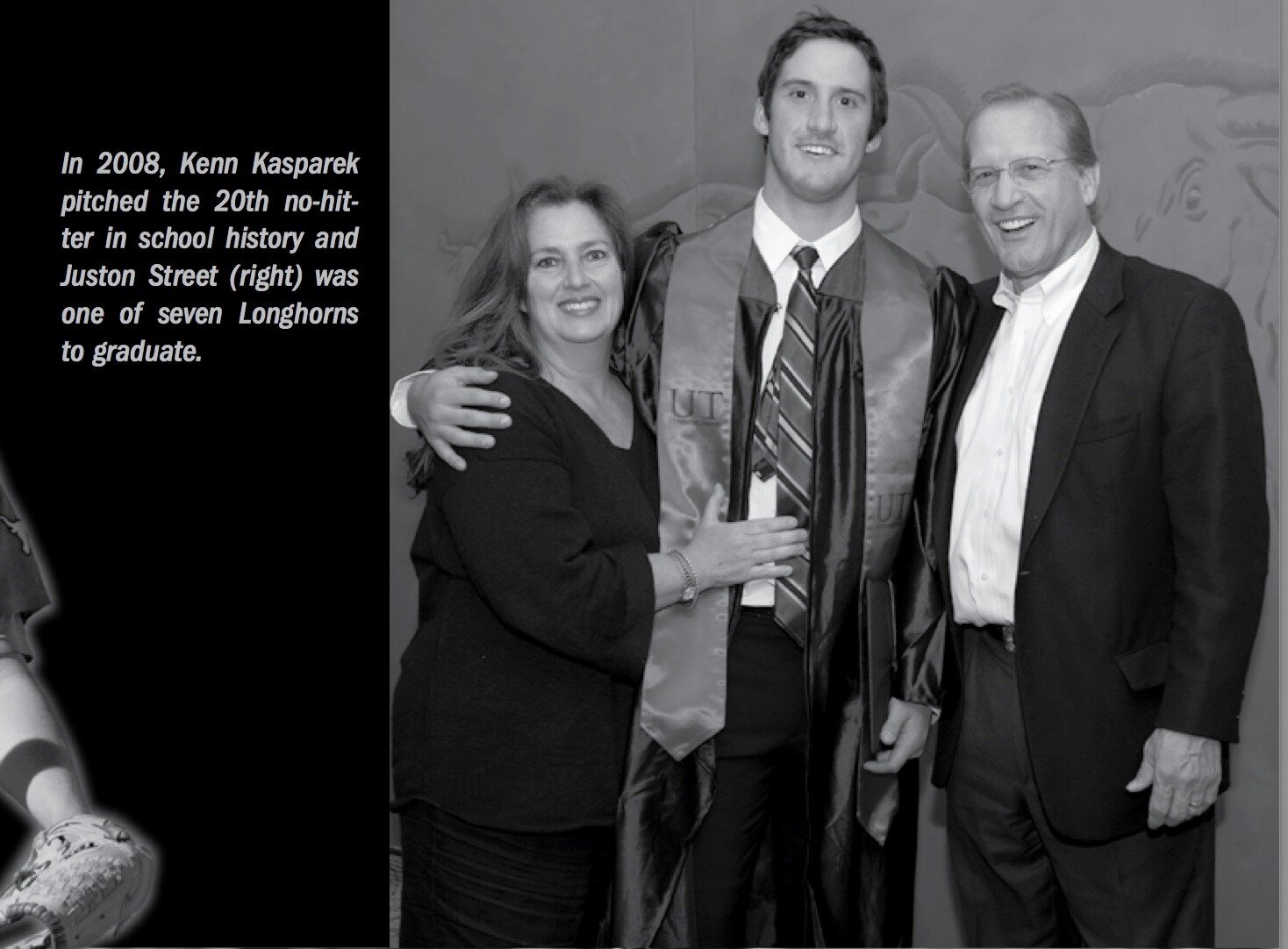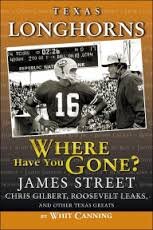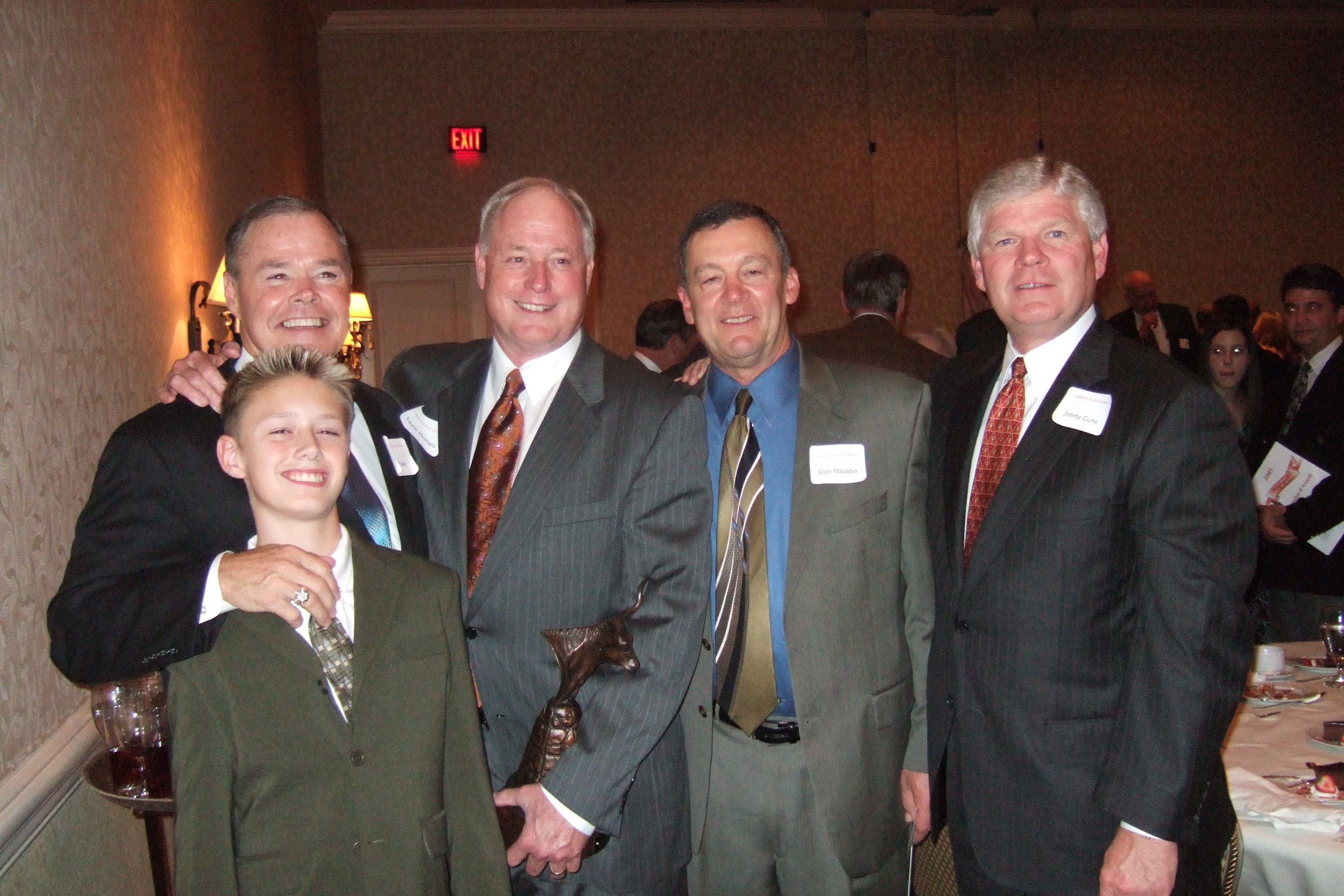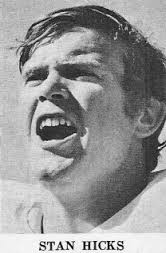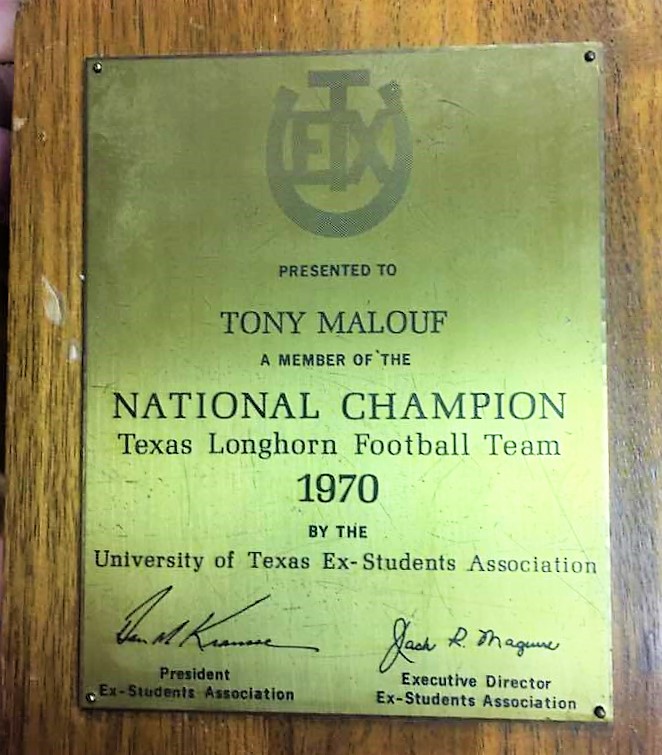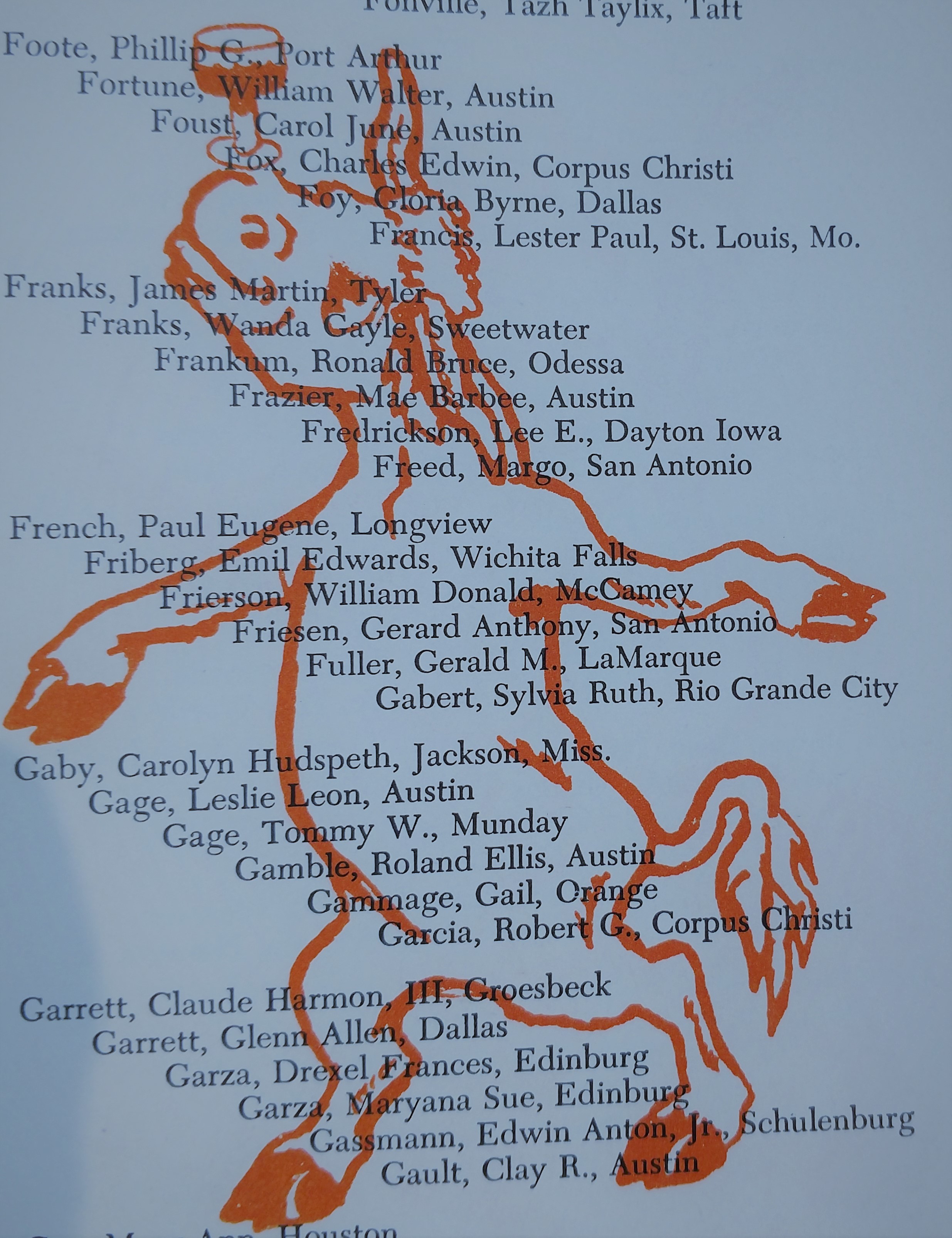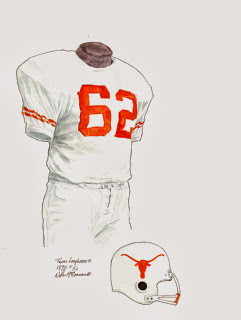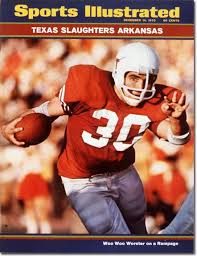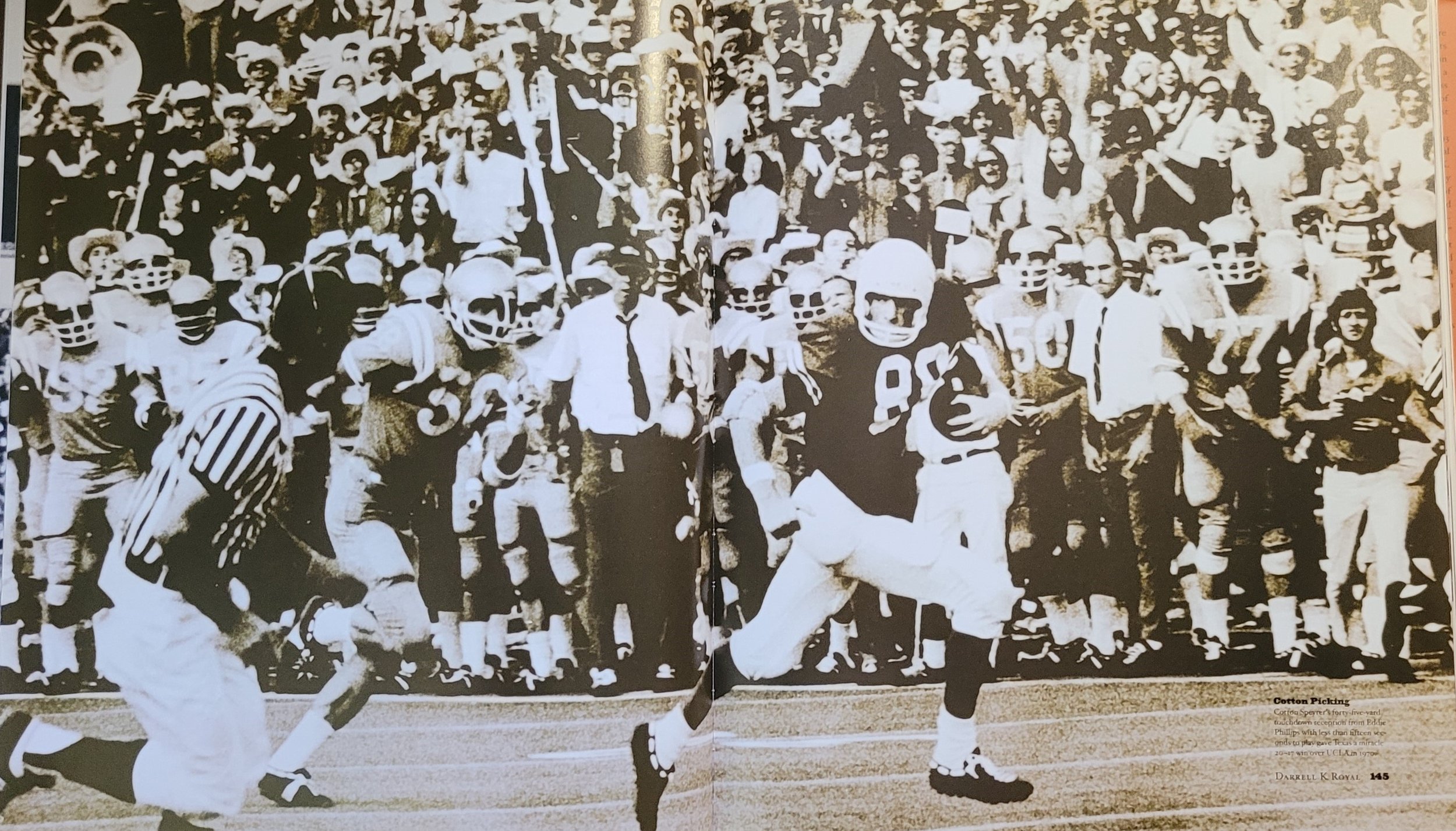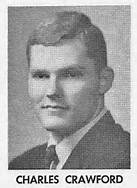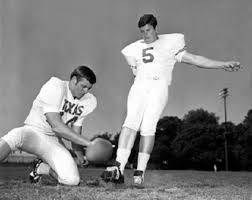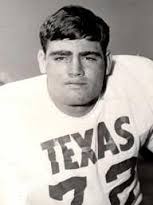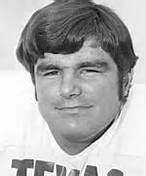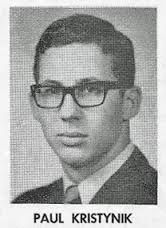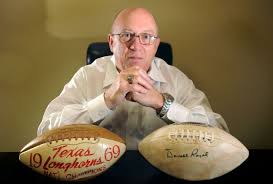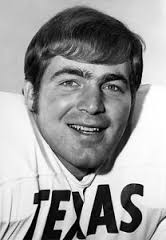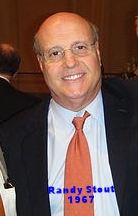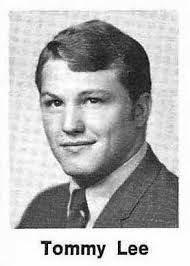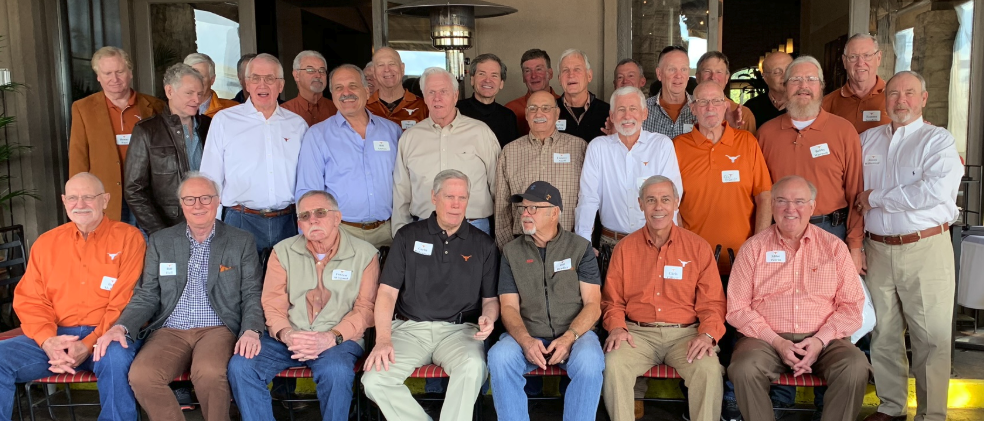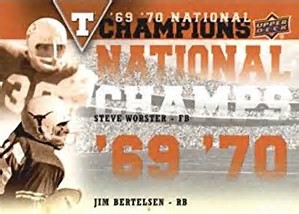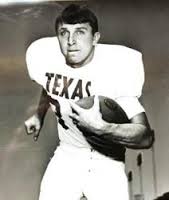“Click on the text denoted in red font on the side bar to visit other football sites in this grid”
The Longhorns were 40-4-1 in 1968,69,70, AND 72
President Johnson said of DKR, “I am not a football fan, but I am a fan of people, and I am a Darrell Royal fan because he is the rarest of human beings.”
In Tessa Nichols’s thesis titled ORGANIZATIONAL VALUES AND WOMEN’S SPORTS AT THE UNIVERSITY OF TEXAS 1918-1992, Donna Lopiano is quoted as saying, “I would rather work with Darrell than any other men’s athletic director around....Darrell Royal is a humanist... What impressed me the most was his concern over the welfare of students.”
R.C. Slocum, the Aggie head coach, said about DKR, “He’s been around Presidents, but he has lived part of his life with the common man, and he never lost touch with the guy on the street. That has impressed me about him more than anything else.”
Royal’s coaching style was firm. For example, he once told one of his star quarterbacks that “if he ever waived off a play” sent in by me, “he had better score with it.”
Press the Kicking game
Coach Royal’s Obsession With The Execution Of The Kicking Game occurs After TCU Returns Two Punts For Long Yards. From that moment on, he gave The “Kicking” game” Speech Before Each Game. The Speech Starts With “Press The Kicking Game For It Is Here The Breaks Are Made.”
Royal reasons that “if we can kick the ball from our 30 to their 10, that’s six first downs in one play.
In the book “Darrell Royal Dance With Who Brung Ya” by Mike Jones and edited by Dan Jenkins, DKR is quoted as saying about poor punt coverage, “You would have thought we’d be on it like a hen on a June bug.” Unfortunately, punt returns can kill you faster than a minnow can swim a dipper.”
From 1967 thru 1970, 3 African Americans walked on at Texas- E.A. Curry, Robinson Parsons, and Talmadge Blewitt. Leon O'Neal becomes the Longhorn’s first scholarship black player, but he leaves after his freshman year. Julius Whittier was the first African American to make the Longhorn varsity team.
A link to the Briscoe Center site concerning DKR is below
http://www.cah.utexas.edu/news/press_release.php?press=press_royal_memoriam
Emory Bellard played for the Texas team in 1945 before breaking his leg. In 1967 he returned to Texas. From his mind, an option offense named the Wishbone was formed.
Before the Wishbone offense took center stage, the opposing defense's job was to react and neutralize the offensive play. Emory Bellard changed the defensive strategy with the option offense by devising the first successful offensive college running scheme dictated by defensive decisions.
Neither offensive nor defensive players knew who would get the ball when the ball was snapped. As the play unfolded, the defensive decisions chose the ball carrier. It was magic, a James Street/Eddie Phillips/and Donnie Wigginton wishbone hat trick that led the Horns to national prominence.
Coach Royal understands the option offense because he was the OU quarterback for an option offense in the 1950s. OU called their offense the "OU Split" Like the wishbone, it required the quarterback to "read" the tackle on an option play.
1968 9-1-1
Three 6-4 seasons led to the Purge of 1968
It is James Street’s team with Bill Bradley’s spirit that leads to the victories in 1968 and a number 3 ranking.
Coach Royal knows his job is in jeopardy after three, 6,- 4 seasons. So, in the Spring of 1968, he develops a "conditioning" program that will determine who is on "his" team, and he tightens up the off-field restrictions to re-focus priorities.
In the book Texas Caesar, author J. Brent Clark shares a vital moment that captures the essence of Coach Royal's future coaching style. One evening after practice, Sooner coach Bud Wilkinson noticed that O.U starter Darrell Royal was still working out. So the coach told him to go home. Royal responded, "but coach, I want to find out what I can do when I am tired."
In 1968 Coach Royal wanted to know how his players would react when they were tired. The book Echoes of Texas Football says that Royal wanted Spring training in 1968 to be a living hell. He was determined to "get rid of the those who could not take it, those who didn't want it bad enough would be gone, one way or the other."
Royal decided that if he was going down, he was going down with his toughest players. Scott Henderson said he was not surprised at the hard work-outs, but he was "surprised that so many guys quit." Henderson did not participate in the Spring purge of 1968 due to knee surgery.
The year of the Wishbone started with a reign of terror by the coaching staff that author J. Brent Clark said resulted in "30 players quitting and 30 injuries ". Then, Cotton Speyrer says, "Royal made it clear that the spring of '68 would be a living hell. The rigor, the regimen, the contact, and the competition would push players to the limits."
So many players were quitting that the media wire services hinted that there was dissension on the team. Worster fan the flame, saying the team “was not unified.” Worster retracted his statement, but the harm was done.
Royal said, "Most of the kids who quit were 6-4 season players who had been beaten out. But, Deryl Comer was the only one that shocked him. Royal says, "Deryl came in one day and said, 'Coach, I'm just tired of football. I don't like to play it anymore. I've been playing all my life because other people wanted me to.' So Comer left. I was sick". Jones Ramsey, the UT publicity man, said to Deryl Comer, "In four different positions, he'd be the best we have." Royal continues, "Deryl was one of our best. But a day later, he was back. He just came back and said he couldn't understand why he left, and he's been great. His catches helped us beat Oklahoma."
As a player for Royal, I can assure you that I had no choice but to learn what I could do when tired. Sometimes, I was so tired that I had to stop 🛑 and bend over with my hands to my knees to rest, climbing the small hill from the stadium to Moore-Hill Hall after practice.
In Fall 1968, during two-a-day practice, nine more players quit.
He used the survivors of the purge of 1968 to form the nucleus of a team that won 30 games in a row and two national championships.
Horns break five team and conference offensive records during the 1968 football season.
Royal said about the Worster Bunch their sophomore year, "some of them are so green you could hide 'em on top of a lettuce leaf."
Quarterback Monty Johnson leaves the Longhorns and joins the OU Sooners. A new NCAA rule requires the clock to be stopped on first down.
Royal delegates authority to the assistant coaches. Tear-away jerseys are reinstated for the backs. The loss to Texas Tech resulted from two long punt returns and poor execution. But, excluding those negatives, the Texas Tech loss helped build the bridge and reveal the winning formula that would last for 30 straight games.
After the Texas Tech game, the following changes were made:
James Street wins the starting position. Royal says about James in the Texas Tech game, “James was jumpy as a long-tailed cat in a room full of rocking chairs.”
From Rat to Slick
(After almost drowning at Lake Austin, his teammates nicknamed “Rat” as in a drowned rat, later he was also assigned the moniker “slick” because he called people he met. “Hey slick, how are you doing?”)
After the Oklahoma State game, all the Wishbone backs stances were moved 2 feet backward. This allowed the quarterback, offensive line, and fullback more time to read the defensive tackles and decide on a fullback handoff, quarterback keep, or a pitch-out to the halfback.
Royal learned that leaving the band at home was a mistake saying, “I kind of like to hear ‘Texas Fight’ when we’ve got a rally going.” Never again did the Horn band miss a football game.
Royal reinstated the “foot-stomping, rip-snorting pep rally like we used to have” on Friday nights.
Coach Zapalac said that the changes made created one of the best blocking offensive lines in the history of Longhorn sports.
The 1968 Texas-OU game still holds the record with 800 fan arrests by 700 uniformed police.
TOPPING THE CHARTS
Final Ranking 3rd Nationally
Top of the Charts Mustang Sally
The 1968 team holds the Texas single-game record for most first downs in a game (38) against Baylor.
1968 Is The Start Of a 42 Home Game Win Streak That Is The 7th Longest In NCAA Football History.
Even though Texas lost 1 game and ties another, the NCAA still recognized Texas as a National Champion.
Against OU Lloyd Wainscot downs a punt on the 1 yard line, tackles the quarterback in the end zone, strips the ball from the quarterback, and accumulates 18 tackles.
Wainscott is named to the All American team and Gilbert is the leading rusher in SWC history.
Bill Bradley was the best athlete on the team in 1968, but destiny chose another path to celebrate his talent that year. His demotion led to greatness for both James Street and Bill Bradley. In 1967 Bill as the Texas quarterback threw 4 interceptions in a loss to Texas A & M. In 1968 as a defensive back Bill intercepted 4 of A & M’s passes. A Texas game record that still stands
Texas decimates Tennessee in the Cotton Bowl. Each team receives a record $340,150.60 to split with their conference.
Coach Campbell says that Corby Robertson plays with total disregard for his body.
Coach Mike Campbell says about Chris Gilbert’s fumbling in 1967. "His problem is momentum," says Campbell. "When he makes a move it's so fast the ball doesn't always get the message."
Gilbert and Wainscott make the All-American team. In addition, Gilbert won the most valuable player award at Texas for the 3rd time, and the Texas Sports Writers Association picked him as amateur athlete of the year.
Comer, Abbott, Halsell, and Worster made the All SWC team.
Mike Perrin received the Earl Blaik fellowship awarded by the National Football Foundation, and Corby Robertson received a $1000 National Collegiate Athletic Association scholarship.
1969 11-0 James Street’s team
The picture of the football player as a privileged student is not a caricature. The gifted athlete’s special benefits included free room and board, paid-up college tuition fees and books, and special academic tutors. In 1969 the cost of free feeding the athletes was $165,000, and their rent-free rooms cost the school about $82,000.
The budget for athletes was $400,000 in 1970; recruiting costs were $75,000, the department payroll was 500,000 a year, and the total athletic budget 1,500,000. A huge budget for this era.
Texas opened the season ranked 4th behind Ohio State, Arkansas, and Penn State.
In 1969, feeding the athletes cost $165,340, and dorm rooms cost $82,000. Each scholarship was worth $1,250 a year with a total cost of $400,000. The recruiting budget was $75,000, and the athletic department payroll was about 1.5 million.
All the football coaches got raises for the 1969 season.
Deryl Comer’s surgery post-operative rehabilitation on his knee was not complete, and he was red-shirted. Randy Peschel and Tommy Woodward replaced him in the lineup.
At Memorial Stadium, the astroturf and an all-weather Tartan track were completed at $575,000. The first game on the turf was a 49-7 win over Texas Tech.
Bertelsen tied a school record with four touchdowns against SMU.
Six hundred seventy-six yards in total offense against SMU was the most yards in a game since 1915 when Texas beat Daniel Baker with 709 yards of total offense.
After the game with Texas, Gene Stallings, the Texas A & M coach, said, ”They’re as great as I’ve ever seen. I know they’re the best I’ve ever played against.”
The first game on AstroTurf: Texas 49, Texas Tech 7 (9/27/1969) Attendance: 65,200
The link to the 1969 season is below
http://www.texasarchive.org/library/index.php/2010_01600
There are no blacks on the Longhorn team, while the Sooners have 7. The Longhorns are winning easily, and before the OU game, Royal is concerned that the Horns are not in shape and tough enough to play the Sooners. He said his horns might not be ready for a “jaw-to-jaw knucks-down gut check .” … “Like when you shot marbles as a kid, and then you started playing "‘keeps,” and everybody got knucks down, and you hoped the other guy’s hand would quiver, and if it didn’t, you knew you were all covered up with trouble. For the first time as a head coach, he put the Horns thru a 45-minute scrimmage on a SUNDAY.
TOP OF THE CHARTS
Hayden Fry Says "Texas Is The Greatest Football Team That I've Ever Seen And Probably Will See." The 1969 Team Set The Single Game Texas Rushing Record With 611 Yards Against His SMU Team.
The Longhorn Field Surface Is Converted To Astro Turf.
Vietnam, Walking On The Moon, Protest, Racial Issues, Drugs, And "Flower" Children Are The Backdrop For The 1969 Team.
It Is The 100th Year Of College Football and the Longhorn team is on fire
DKR says about playing Arkansas, "They’re gonna come after us with their eyes pulled up like BBs.” Even with four fumbles and two interceptions, Texas still beats Arkansas. Royal states in Jimmy Banks's book The Darrell Royal Story that he felt the Longhorns had played poorly and that he personally had failed to prepare them properly.
Fan Skip Tackett writes a poem about Arkansas
Their mountains are a holy place and strangers dare not stray there.
For only fools and longhorn steers would flirt with disaster.
Oh, you will go with banners waiving and a crown upon your head,
But, stop and think. Only fools rush in where strangers fear to tread.
Texas is National Champion in the 100th year of College Football.
After the game, Royal says “We had one great play, and we had a gutsy call, but the rest (of the game) stunk.”
Getting off the plane in Austin after returning from the Big Shoot-out. Fans surrounded the plane. Royal said, “I don’t think I’ll ever see the time where I had to remain aboard the airplane simply because I was afraid to get off.” Security finally got Royal a squad car that got clearance from the airport to use the runway to exit on the other side of the airport.
After the game, the streets around the university were wildly joyous and crammed packed with cars not moving and thousands of students hollering and hugging each other. Not everyone was happy with the events that disrupted Austin that night.
“The police, outmanned, mostly watched. A student wrote the “Texan” that he asked a cop when the police action would start, the cop asked him what he was talking about, and he protested. “But officer, they’re disrupting the orderly flow of traffic, they’re disturbing the peace, they’re drinking in the streets, they’re drinking while driving, they’re breaking beer bottles all over the Drag, they’re defacing public and private property.” The officer responded, “Beat it kid, we don’t want any trouble makers around here. “
Two years after the above photo Lester (car accident) and Steinmark (cancer) had passed away
Freddie Steinmark can’t understand why Penn State did not want to settle #1 in the Cotton Bowl. Freddie says, “We could never figure out why they didn’t choose to settle it on the grass in Dallas, rather than from a soapbox in Pennsylvania.
On the bus ride by the team on the day of the Arkansas game, Royal reads a sign that says “Darrell Royal, Cast not thy Steers before swine,” Royal replied, “I had hoped God would be neutral.”
TEXAS-NOTRE DAME
Royal told anyone who would listen that he did not coin the phrase "We are going to dance with who brung us" as is witnessed by the 1914 photo above. Instead, the saying was a popular colloquial phrase used during his childhood in Hollis, Ok.
As a build-up to the 1969 National Championship game, the media asked Royal if he would change his running offense to counterbalance Notre Dame's height and weight advantage.
Royal's response to the media, delivered as a metaphor, simplified a complicated question.
Texas danced “with who brung us”- the Wishbone- and won the National Championship.
The estimated income for the Cotton Bowl for Texas was $125,000. $12,500 of that amount was allocated for awards to the athletes, 8% extra pay for the coaching staff, and $18,500 compensation for other Texas Athletic groups.
Notre Dame Plays In Their First Bowl Game.
About Bobby- He is an All-American. He is a member of the SWC and Cotton Bowl All-decade teams for the 1970s and is member of the Longhorn Hall of Honor.
Bobby Wuensch shares a story about one of the Arkansas player's comments made to him 40 years after the game. The Arkansas player says that during the game the Razorbacks on defense were amazed that near the end of the 3rd quarter down 14 to 0 that there was no dissension, no name-calling, no grumbling, no frazzled looks displayed by the Longhorn offense. The Horns were not rattled and remained “calm, cool, and collected”.
When I first met Bobby Wuensch as a teammate in 1968 my first impression was this guy is too soft-spoken and too nice to be a football player. That is before I saw him in the locker room before our first game. Bobby was an animal on game day. Screaming in the locker room, banging his helmet against the locker as if the locker was the opponent for the day. I knew on that day that I was glad Bobby was on my team for the next three years!
Bobby anchored one of the best offensive lines in the history of Texas Longhorn football from 1968–1970. In 1970 he joined his best friend Bill Atessis as a consensus All-American. Of the top 50 players in the history of Longhorn football, Bobby is ranked #19. Jerry Sisemore was on the 1970 team and is at #9 is the only offensive lineman that ranks higher than Bobby.
Topping the Charts 1969
James Street in voted MVP for the Horns.
First two images below are compliments of Harris Argo
Street, Worster, Speyrer, Wuensch, Halsell , Atessis , and Brooks made the consensus All SWC team. Street was selected as MVP of the team. , won “amateur athlete of the year by the Texas Sports Writers Association. Royal was coach of the year and “Southwesterner of the year.”
OU and Texas series 55-31-2 in favor of the Longhorns. Wuensch, Speyrer, and Worster each made a All-American teams.
Bill Little Commentary: Being James Street
The happy-go-lucky competitor we knew in college never really left - but he learned a lot since those days when winning was everything.
Bill Little, Texas Media Relations
"Let me live in a house by the side of the road
Where the race of men go by-
The men who are good and the men who are bad,
As good and as bad as I.
I would not sit in the scorner's seat
Nor hurl the cynic's ban-
Let me live in a house by the side of the road
And be a friend to man."
Rocks in life are funny things. You can throw them; try to budge them; climb them; sit on them; lean on them, and the truth is you come to depend on them.
James Street was a rock.
Phone calls in the early morning hours are never good things. They are either a misdial or bad news. This one was the worst of news.
James Street was gone. Way too soon. Way too sudden. In the flick of an instant, an icon of Longhorns football had passed away without warning.
If you define a person by the people he knew and the things he did, James Street's was a life well lived by the time he was in his mid 20s. In an era where college football was the nation's dominant sport, he became perhaps its most famous player.
"He stood out from everybody else because he made clutch plays and he never quit. He was likeable and fun, but most of all, he won. He remains my favorite Texas quarterback of all-time," said famed author Dan Jenkins, who covered James and the Longhorns team in 1968 and 1969.
"I remember standing with the late Jones Ramsey in the press box as the fourth quarter began in the "Big Shootout" in Arkansas in 1969. Texas was behind, 14-0, and Street scrambled 42 yards for a touchdown.
"I remember Jones saying 'I had given up…I'm sure glad Street hadn't,'" Jenkins recalls. History, of course, chronicles the rest of the quarter, where Street led Texas to a 15-14 win and a national championship. Millions had watched as the Horns pulled off the comeback in the season finale of the 100th year of college football.
And with that, James Street became a "rock star" years before anybody ever came up with the phrase. He was at home in Vegas or in New York. He knew Elvis Presley and President Johnson and hung out with pro football players such as Bobby Layne and Joe Namath.
In that space and in that time, "Being James Street" was a pretty cool deal.
As a player, James was the ultimate competitor, and it didn't matter what the game was, he was in it to win. But as the shock of the morning gave way to the sadness of the day, we get to talk about the man, and not the game.
"Being James Street" has meant a lot of things to a lot of people. As a football and baseball player at Texas, it meant a guy who was there to compete, and to win. And win was what he did. As a quarterback at Texas, he started 20 football games, and the team won them all. Twenty and "0". National champions. As a pitcher in baseball, he was just about as successful.
With a wicked curve ball that made him a second-team All-American, he was part of teams that went to the College World Series every year he played, and finished in the top four each of his last two seasons.
He was named the Most Valuable Player on the 1969 National Championship football team, and all three years that he played baseball.
Throughout his college career, "Being James Street" had meant leadership, and as a star pitcher and a quarterback, he often led by example.
In June of 1970, with his football career behind him and the College World Series over, James Street's athletic career ended. Now, it was time for something else. "Being James Street" meant that it was time to figure out what he was going to do with the rest of his life, and to do that, he had to first figure out who James Street really was.
I remember a message the Baptist preacher in Winters, Texas, once brought to my elementary school. He was telling us something that would impact my life, and I know James got a similar message along the way.
"You have to ask yourself these questions," he said. "They are the same questions your parents will ask you when you go out at night. 'Where are you going? Who are you going with? And what are you going to do when you get there?'"
What do you do with your life when the shouting and tumult dies?
As a kid, I once put together a book of poems, and one of them was a little rhyme called "Sometimes." "Across the Fields of Yesterday," it went, "he sometimes comes to me…the little lad just back from play, the lad I used to be. And yet, he smiles so wistfully, once he has crept within, I wonder if he hopes to find The Man I Might Have Been."
He had taken charge of a Texas offense in football, he had taken charge when he walked to the mound as a pitcher in baseball.
James Street, star player, had a decision to make. The early years following his college career hadn't been seasons in the sun. Not unlike many of us children of the 60s, there was a space where the moments were good, and not-so-good. And some were just flat lousy. It had been a spell since "Being James Street" was really fun. Now, he had to take charge of his life.
Do you spend your life living with what was, and wondering what might have been?
Where are you going? Who are you going with? What are you going to do when you get there?
What James Street did was become perhaps the best structured settlement financial advisor in the country. He helped people who had been touched by tragedy find a way to secure their assets so they could live comfortably for the rest of their lives.
"I didn't know James in the dark time," a leading Austin attorney told me. "But what I appreciate about him is that he started a company in a business that he really didn't know a lot about and he learned.
"He learned the business, and he never used his days as a player as a crutch. He used it as an inspiration. It became about his humility, rather than some kind of diseased conceit. He was the best in the business at what he did, and he was a great guy."
Some parts of "Being James Street" never changed.
The James Street we knew in later years was not only a successful businessman, he was a caring, devoted husband, father and grandfather. The parenting part came naturally. Throughout his career at Texas and beyond, James had no greater fan and supporter than his mother.
Despite an incredible schedule, he always had time for people. His self-deprecating humor fostered his larger-than-life image. He had a way of making it seem, in the moment, that he always had time for you, and talking with you was the most important thing he had to do in his life.
That was true whether you were somebody like a great friend such as Mack Brown, or a struggling fellow traveler who was trying to whip the disease of alcoholism - just as James had done. And he never appeared condescending. Once, at a dinner at in New York, a waiter was taking drink orders. Martinis, cold beer, wine. Finally the waiter came to James, who politely said, "No thanks, I've had enough." He just didn't say when. James took his last drink more than 30 years ago.
We will remember his friendship, his honesty, his smile, his little bit of a song, his infectious humor and his uncanny homespun wisdom.
The happy-go-lucky competitor we knew in college never really left -- he was still a kid at heart -- but he learned a lot since those days when winning was everything.
When his son, Huston, was playing for Westlake High School and they had lost to Midland Lee in the football state championship game, James talked to him after the game.
"Let me live in a house by the side of the road
Where the race of men go by-
The men who are good and the men who are bad,
As good and as bad as I.
I would not sit in the scorner's seat
Nor hurl the cynic's ban-
Let me live in a house by the side of the road
And be a friend to man.
"
It defines him, it validates him. Because that's what being James Street was really all about.
"Were you as prepared as you could possibly be?" he asked. Huston said yes. "Did you give your best effort on every play?" Again the answer was yes.
"Then," James said, "you have done everything you could to win, and the other team was better that day. Go over there and shake hands and give them the credit."
"Credit" was something James never took for himself. In his time at Texas, it would be about his teammates. As a businessman, it was about the people in his company, The James Street Group -- one of the largest structured settlement firms in America. When it came to raising kids, it was about his wife, Janie. He was one of the most giving people -- of his time, his talent, and his money -- I have ever met.
Sunday James and Janie had returned from a trip to San Francisco to see Huston's team -- the San Diego Padres -- play the final game of their season. He was proud of Huston's sports career, but equally proud of his oldest son Ryan (a successful Austin architect), and the younger brothers -- the twins Juston and Jordan -- and the youngest, Hanson. Daughters-in-law and grandchildren also arrived to make a huge impact in his life.
In the summer of 2002, when Huston was a freshman, the Longhorns won the College World Series, and by chance the Street family joined us at an Omaha restaurant called "Mr. C's" after the game. We put the NCAA championship trophy at one end of the table as the food arrived, and each youngster waited patiently for all to be served. Then, they held hands and said a prayer, giving thanks for the food, and the day.
And that is the image we are left with. In a very real sense, he was larger than life. But for those who knew him and whose lives he touched, "Being James Street" meant a friend who could lift your day.
That is why that poem at the beginning of this commentary seemed to matter so much.
1970 10-1 Eddie phillips team
W.H. Lanigan, a 1903 sports writer for St. Louis Star, said that Sports programs of the South West colleges would “never amount to much.” He reasoned:
The schools are financially weak;
Athletes prefer the cooler climates of the Northeast to the sweltering heat of the south;
The population of the Southwest is sparse with few athletes to choose from, and many of the great athletes of this region prefer to play for Northern Institutions; and
Teams in the South -like Texas- are lacking in tradition, both among the students and faculty, which are needed to start great programs like those in the North.
I think he was wrong.
By 1970 everything at UT had grown significantly. The student enrollment was at an all-time high with 35,678 and growing. The Texas Athletic department budget was $1,628,000.
The upper deck budget for construction on the Westside was $12.8 million, but only 5 million comes from the Athletic budget. The rest was funded by creative financing.
The link to Eddie’s interview is below
https://www.facebook.com/watch/?v=1548924877826
Asked by a reporter about the team to follow the national champion team of 1969, Coach Royal said, "There would be a drop-off, but we wouldn't be stillborn." Frank Broyles disputes that assessment. This year after the Arkansas game, he says, "It was the most inspired Texas team we've met," Broyles sighed. "And you'd have to say the best."
Coach Royal says about Eddie Phillips," it takes some athlete to run our team the way Eddie does. Royal had been insisting that his new quarterback, junior Eddie Phillips, was, if anything, a better athlete than Street and just as talented at making the Texas offense work.” It takes an athlete to read the option, make the handoff, keep and run as well as he does, or make the pitch and then throw a block. You take the guys with the stats. I want Eddie." “He's good on the option, almost instinctive with it.”
Eddie Phillips was at least as good as James, if not better. Eddie was a great passer, runner, and option quarterback. Do you need proof? Here it is.
Eddie’s team in 1970 as of 2019 still holds most of the rushing records at Texas, setting a new school record in scoring efficiency with 62 points on 132 possessions. The 1970 Team Holds The Texas Record For Most Rushing Yards Per Game (374.5 Yards); Most Rushes In A Game- 90 Against Arkansas; Most First Downs In A Season By Rushing- 200; Most Rushing Attempts In A Season- 715; Most Net Yards Gained Rushing In A Season ( 3,745)
In the Oklahoma game, Speyrer is lost for the season with a broken arm. Royal confided before the game that he thought Texas had a chance to be as good as last year, particularly on offense, but losing Speyrer gave him second thoughts.
#30 reigns - Some for good reasons and the other for bad reasons. #30 was the All American Steve Worster, #30 also represented the 1967 recruiting class called the "Worster Bunch" that was composed of 32 seniors who played in all 30 games of the winning streak who loss to Notre Dame. As the Cactus says "It was a season of high pressure, excitement, and in the end , heartbreak."
http://www.texasarchive.org/library/index.php?title=2011_00326
Texas vs. Arkansas
Before last year's game the Texas coach, staff, and team were amazed that a send-off pep rally in Austin's Memorial Stadium had drawn 25,000. This year 37,000 turned out on Friday evening to whoop and holler and hear Royal and team members. The high point of the rally came when Texas' All-America tackle, Bobby Wuensch, got up to speak in a surprisingly high-pitched voice. There were light giggles. Wuensch bristled at the microphone and said, "You can laugh, but we're gonna whup 'em good." Sports Illustrated says, “It's hard to imagine a team readier than Texas this year. Or madder. It looked as if some carpenters would have to be called to un-nail the Texas blockers from the Arkansas defense from the very start. Texas owned the scrimmage line on the game's first play, when Bertelsen went 13 yards, and never stopped owning it until Royal's Wishbone I had cut up Arkansas for 464 yards rushing”.
Final ranking- co-national champions
National Championship teams require good recruiting, a competent coaching staff, players with faith in the system, trust and respect for teammates, combined with talent, team chemistry, a strong work ethic, and a little luck.
TEXAS-UCLA
The 1970 recruiting class definitely has some luck on their side. In 1970 Texas is outplayed by UCLA, but manages to win on the last play of the game.
1970 highlights of UCLA game - no sound Cotton Speyrer's touchdown reception from Eddie Phillips to beat UCLA is at minute "2:26" in film below
Memories Of The Catch: Texas Vs UCLA 1970
http://www.barkingcarnival.com/2010/09/21/memories-of-the-catch-texas-vs-ucla-1970
Stephen Ross Sept 22, 2010 writing for Barking Carnival says:
I on the other hand would prefer to re-live the thrilling Ying of the Bruins first trip here.
It was 1970, and Austin was a still a small college town...................
I was a sophomore at UT, working at KHFI-TV (now KXAN) as the floor manager for the nightly newscasts. Back then there were only two TV stations in town and it was easy to get hands-on experience in the business. I spent most of my time trying to talk the sports director, Mel Pennington, into letting me go to games as a photographer, but that job went to more senior members of the news room, so I was able to take part in the student draw.
I was working on a great string of draws for student tickets -- until the UCLA game. I got tickets on the south goal line 5 rows up.
Still it was the best of times for UT football. Texas was defending National Champion. Work had begun on stadium expansion that would add an upper West side deck while connecting Bellmont Hall to the stadium as well.
When work began on the west side expansion of Memorial Stadium in 1970, capacity was at 65,500.
The press box was torn down and a temporary wooden structure was used for 1970. Some upgrades were already installed, such as new aluminum benches and seats througout the stadium.
Texas would enter the game #2 in both the AP and UPI polls, behind Ohio State, while UCLA would come into town ranked #13. Tommy Prothro was the Bruins coach, and he was considered to be among the best on the business. Before moving to UCLA he had taken periennial loser Oregon State to two Rose Bowls, and he was 35-13-3 at UCLA.
That didn't matter to Longhorn fans -- or the oddmakers, who had installed Texas as a 22-point favorite for the October 3, game. Afterall, Texas had a 22-game win streak built around the new offensive attack that no one had figured out how to slow down, much less stop.
When UCLA came to town, Darrell Royal's Longhorns had won 22 games in a row by an average score of 39-13.
But it didn't take long for the players and fans to realize this Saturday was going to be different. On the second play of the game, Texas halfback Billy Dale was blasted by a UCLA linebacker just as QB Eddie Phillips pitched him the ball on the option. UCLA recovered the fumble and the fight was on.
Prothro was the first coach to attack the Wishbone with a "mirror" defense, essentially playing man-to-man on every member of the offensive backfield. He would disguise where the man was coming from and Royal admitted after the game that he and his staff were caught completely offguard by the manuever. It caused the creation of a classic Royalism.
Of UCLA and Prothro, DKR said, "UCLA brought some good people into town and they came in a bad humor. Tommy Prothro didn't come in on a load of wood either."
UCLA contained the Wishbone for most of the day, especially QB Eddie Phillips. They harassed him on the option, and sacked him on passing downs enough so he ended the day with 17 yards on 20 carries. The one part of the triple option that still worked was the fullback option.
Neither team managed much offense early in the 4th quarter, but Texas finally started a long march towards the south goal. But on 4th and 4 right in front of where I was seated, Jim Bertelsen slipped trying to get to the outside and UCLA took over on downs with a little over 2 minutes to go.
The air went out of the stadium, and there was only 52 second left when Texas got the ball back, with no timeouts. There was a break in the action after the UCLA punt, and the PA announcer, sensing that the game was slipping away, made an announcement about the Longhorns 22-game winning streak. He in essence was asking for applause for what the team had accomplished.
Then a wondrous thing happened. The entire student section on the east side stood on the new aluminum benches and began to stomp and cheer.
It quickly spread throughout the stadium -- even to the west side. Over 65,00 people were standing and stomping making more noise than I had ever heard in Memorial Stadium. A friend who was in the press box working for the Daily Texas said that suddenly the wooden structure began to wobble as if there was an earthquake. The noise continued as Texas broke the huddle.
After making one first down, Eddie Phillips was chased out of the pocket, and as he was going down for a 9-yard loss he fumbled the ball out of bounds. Good thing, since it stopped the clock.
Facing 3rd and 19, Royal called "86 pass, Ted crossing, Sam post."
Jim Bertelsen broke the 'bone and ran a short hook to help clear the middle. Tight End Tommy Woodard (Ted) ran a deep middle route, while Cotton Speyrer (Sam) ran the post. The ball barely went over Woodard's head (he was double covered) and as it reached Speyrer the UCLA defender in the prevent tried for the interception while another UCLA defender near bye was caught leaning the wrong way.
With just 12 seconds to go in the game I suddenly had the best seat in the house.
The noise factor doubled and those still in the press box began to fear for their lives as that structure began to shake like a bowl of jello. I don't remember a whole helluva lot of what I did that night, but I do remember that I was in no shape for class on Monday and it took all the energy I had just to drag my ass to work that afternoon.
The win gave Texas the new SWC record for most victories in a row at 23. But the post-game atmosphere was strikingly reminiscent of that in Lubbock last week. Royal was bombarded with questions about the offensive troubles until he finally said,
"There are some people around here who think all we have to do is put on an orange uniform, crawl out there in the Wishbone and say, 'Bang, you're dead'."
TEXAS-NOTRE DAME 1971 cOTTON bOWL
In 1970 The National Champion Is Still Crowned Before The Bowl Season Begins So The Cotton Bowl Loss To Notre Dame Does Not Cost Texas The National Championship. This Also Occurred In 1964 When Alabama was Crowned National Champion Even Though Texas Beat Them In The Orange Bowl.
Coach Royal Says Of The Longhorn Fans After Notre Dame Broke Texas 30 Game Win Streak. " We're Beginning To Develop Some Difficult Fans. They Don't Understand There's No Such Person As King Kong And That When You Start Thinking There Is, You Can Get Ready To Wipe Your Bloody Nose."
While Luck Is Needed To Win Some Games, Talent Wins Most of the Games. Arkansas And Oklahoma Witness The Talent Of The 1970 Texas Team. OU's Wishbone Is Dismantled By Texas Defense, And The Texas-Arkansas Shootout In Austin Is A Mismatch. Arkansas, a Team Ranked In The Top 10, Is Decimated 42-7. The OU And Arkansas Games Are The Finest Performances Of The 1970 Team. After The Arkansas Win, Coach Bear Bryant Said That The 1970 Team Is The Finest Team He Has Ever Seen.
Thirty-Five Years After The 1970 National Championship Season Eddie Phillips Says In 2005 During His Induction Into The Hall Of Honor "I Am Ready To Give Up The Reins As The Last National Championship Quarterback To Vince Young."
Eddie's Comments Capture The Collective Thoughts Of The 1970 Team, And On January 4th 2006 The Spirit Of The 1970 Team ceded The National Championship Crown To The 2005 Longhorns.
Worster, Bertelsen, Wuensch , Mitchell, Atessis and Henderson were All-SWC. Zapalac won two post-graduate scholarships and he and Henderson made the All-Academic American team.

